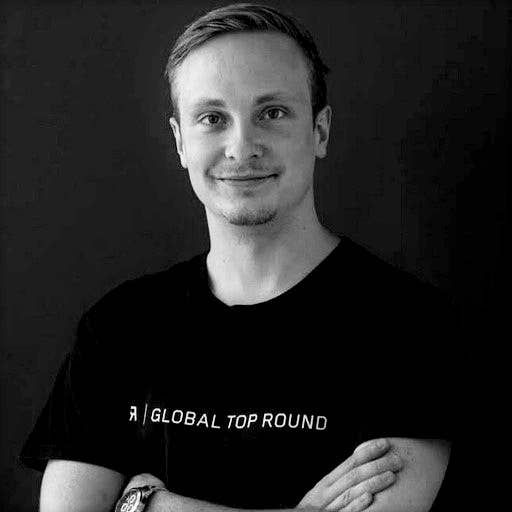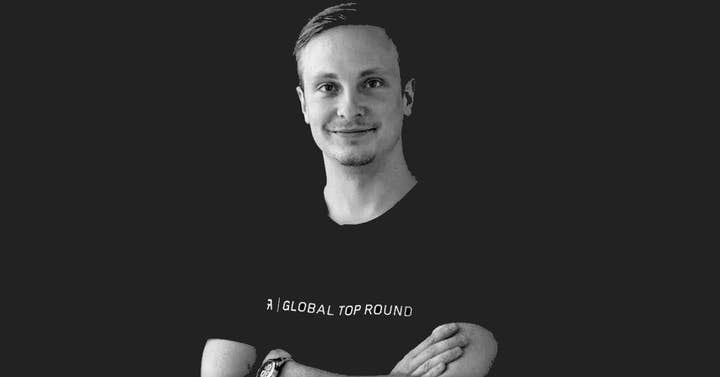What's changed for devs seeking early investment?
Global Top Round's Pontus Mähler discusses mobile metrics, indie acceptance, and the firm's new seed funding program
Global Top Round has been running the GTR Accelerator Program for seven years, investing in ten pre-seed companies every year since 2015 with no preference of genre or country.
The investments are relatively small. GTR gives every company it invests in a minimum valuation of $800,000 and the first investment is $40,000 (no more than 5% of the company), with an option to buy an additional 3% to 6% later on.
Speaking with GamesIndustry.biz, GTR VP of global business development Pontus Mähler says over the years of handling the program, the team noticed a specific kind of situation coming up.

"One of the 'flaws' of our program was that sometimes we would meet teams that loved our model and were like, 'Everything you're doing is awesome, but my burn rate is $40,000,'" Mähler says. "So our money wouldn't really last them very long."
Rather than tweak the existing Accelerator Program, GTR parent company GXC raised almost $14 million in Series A funding to help establish the GTR Seed Program, which offers between $150,000 and $300,000 in seed funding for start-ups that are a little further along than the ones accepted into the Accelerator Program.
GTR is running the Seed Program year-round, and is hoping to back five companies a year in addition to the ten that can be accepted each year into the Accelerator Program.
The gaming investment scene has changed considerably in recent years, and the pandemic in particular has seen an uptick in the amount of funding available for start-ups in the gaming space. But even with that money floating around, Mähler says the accelerator is still filling an acute need in the industry.
"Nobody's willing to give [funding to] these people who don't have the initial capital to build a really good vertical slice to actually fundraise to begin with"
"Something that's never changed is nobody's willing to give [funding to] these people who don't have the initial capital to build a really good vertical slice to actually fundraise to begin with... they still don't exist," he says, adding that GTR has made a point of being willing to back projects even if they don't have a great demo to start with.
"What hasn't changed -- and what I hope changes -- is more people start doing what we do, pre-seed investments in these first companies."
So how about what has changed? Investment in mobile games, for one.
"All mobile investments nowadays are either data only, or they are purely made by connections: Somebody leaving a big AAA studio, they have a friend in a VC, and they get start-up capital to build games," Mähler says.
When he says "data only," Mähler means that the investments are made based on the developer already having a game in soft launch and hitting certain thresholds on metrics like retention numbers. GTR has invested in mobile titles previously that he believed were exceptionally high quality (and he said publisher feedback agreed), but because they didn't have high enough retention numbers early on, nobody besides GTR was willing to give them money.
"And the funny thing here is if they have those stats, they don't need the money to begin with," Mähler says. "If nobody's willing to give them money before they reach the data they need to become a profitable business, why do they need the VC money at all?"
The situation stands in stark contrast to the investment Mähler saw in the mobile market just a couple years ago.
"I saw people taking risks," Mähler recalls. "I saw them giving at least a few hundred thousand. Not a full-blown Series A with millions of dollars, but I saw mobile studios come to GTR and our friends saying they raised $200,000, or this much. People were willing to take risks."
These days, he estimates about 1 in 100 mobile developers he meets with have received some kind of start-up capital. So even though Mähler says the GTR Accelerator Program was designed to give pre-seed start-ups money when nobody else will, the current mobile gaming investment scene makes it harder for GTR to do exactly that.
"Mobile is a more capital-intensive business, meaning they're going to need additional money for scaling and market tests, something GTR is not able to provide at this stage," Mähler explains.
GTR still talks to publishers regularly about mobile games -- and it hopes to have one or two of the initial five GTR Seed Program start-ups in the mobile space -- but Mähler says publishers are still laser-focused on the data.
"Something that has changed in the industry is people no longer really care about where the game came from"
Another thing that Mähler says has changed is interest in indies from AA and AAA publishers.
"Something that has changed in the industry is people no longer really care about where the game came from," Mähler says. "Before it was a Blizzard game, or an Ubisoft game, or whatever AAA publisher and people would buy and play it. But I think consumers nowadays will play a good game no matter who it's from. Like Hades, for example. I personally played 90 hours of that.
"I think the consumer has become really indie-positive in general and they just like to play awesome games, which makes it easier for publishers and investors to actually take risks in the industry... We have noticed much larger interests in our portfolios and our network's portfolios."
Mähler says there's "an overwhelming amount of publishers" on the hunt for new projects, and while not every effect of that is a positive one, he believes it's overall healthy for the industry. Developers in particular can benefit from competition to produce more creator-friendly deals and larger funding amounts.
Publishers are also more open to minority equity investments, he says, whereas before they were more focused on outright acquiring studios. The better treatment of developers has even extended beyond the ones who become business partners, as Mähler says publishers are ensuring even the studios they turn down don't walk away entirely empty-handed.
"We've noticed a significant increase in publishers large and small always providing really solid feedback to our developers, which is also really exciting," Mähler says. "So if the developers don't get picked up, at least there's a really good explanation and a really good feedback document as to why."
As for other trends, Mähler says he hasn't seen much interest in virtual or augmented reality, and notes a lack of large deals in those spaces.
"With the VR and AR industry, it's really hard to help studios scale as well as we've done with our other studios because there is no next step"
"We haven't seen much success outside of [Half-Life: Alyx] and Beat Saber, and titles like that," Mähler says. "So we kind of downscaled our VR scouting process, but recently at GDC I heard a lot of new funds looking for this, so maybe it will change."
He adds, "It's still a very tricky industry. Our model is not meant to finance your whole game. It's meant for us to give you skin in the game, show you that we are here to potentially lose time and money with you, and then we help you find further financing, whether it's project, equity, or publishing. With the VR and AR industry, it's really hard to help studios scale as well as we've done with our other studios because there is no next step."
One final trend we discuss is blockchain gaming. While there are plenty of deals and no shortage of interest in blockchain and metaverse games right now, GTR is avoiding those markets as well.
Mähler says he received 20 blockchain pitches the week after GDC, but GTR told each project the same thing: "Right now we're not looking at blockchain and metaverse games. We want to make sure it's something that will be there for the long-term, that it's something consumers want, and then we'll look into it."
Speaking only for himself and not GTR as a whole, Mähler believes there will be lots of projects launching in the coming years due to the investment, but he's unsure how many of them will stick. He notes that he's seen a number of start-ups who were unable to secure even modest funding pivot those same projects to blockchain and receive larger amounts in a hurry.

